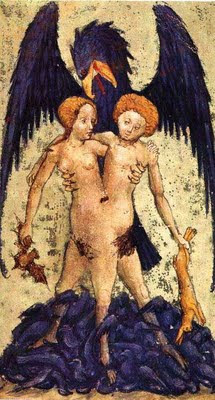NUMEROLOGY
In her works on the natural numbers, Number and Time and Psyche and Matter, Jung's assistant, Marie-Louise Von Franz recounts the story of the value of numbers for the Chinese. Even in the military, where men of logic and order rule, it looks like action and choice are under the law of qualitative numbers rather than quantitative ones. So, once upon a time there were eleven generals who had to decide whether to go to war or not. They took a vote. Three were in favor, eight against. They went to war. Now the question: what must these men have been possessed by to engage, following the minority, when the majority decided against it unambiguously? According to the Chinese tradition of assigning more symbolic value to some numbers over others, a relation of worth taking precedence over success becomes crystal clear: insofar as the number three expresses unanimity, and number eight indicates dubious attachments, it follows logically to endorse the three and discard the eight. This story makes one think of Einstein's often quoted line: “try not to be men of success but men of value,” which allows us to ditch our foolish urge to only engage with things that 'make sense.' Von Franz has also written a fascinating commentary to a medieval text attributed to Thomas Aquinas, Aurora Consurgens. In Aquinas's “Fourth Parable On the Philosophic Faith which Consisteth in the Number Three,” there is an interesting relation of sublimated value between eternity, equality, and the bond between eternity and equality. Diverting the energy associated with 'unacceptable' impulses into a socially acceptable activity has only the function of getting it wrong. While Von Franz makes the obvious remark that “the entire work of the alchemists is an endeavor to reintegrate that unsublimable residue, the sinners on earth and the fallen angels, into a whole,” (255) we are left to ponder on why we love the logic of action as dictated by symbolic choice.












Comments